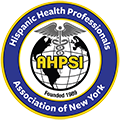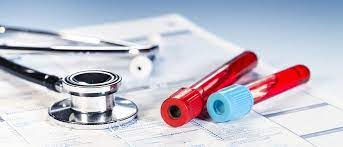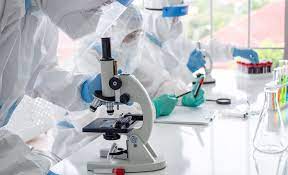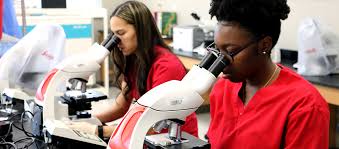Desentrañando los Requisitos: Pasos Iniciales para Obtener la Licencia de Laboratorio”
También en esta pagina encontraras otros artículos.
Eres laboratorista o bioanalistas, graduada en exterior, con planes para aplicar a obtener su licencia , en el área de Hematología, para el estado de New York?
Aquí te ofrecemos los detalles.
Here are the requirements for a laboratory professional who graduated abroad to obtain a license in hematology in the state of New York:
Education:
- A bachelor’s degree in clinical laboratory science from a program accredited by the National Accrediting Agency for Clinical Laboratory Sciences (NAACLS) or determined to be substantially equivalent by the New York State Education Department (NYSED).
- The degree must include coursework in hematology, immunology, clinical chemistry, microbiology, and blood banking.
Experience:
- At least one year of full-time experience (or the part-time equivalent) working in a clinical laboratory performing hematology tests.
Examination:
- Pass the National Board of Medical Examiners (NBME) Clinical Laboratory Scientist (CLS) examination.
Application:
- Complete the NYSED application for licensure as a clinical laboratory technologist.
- Pay the application fee.
Additional requirements:
- Be of good moral character.
- Be at least 18 years of age.
Here are the steps involved in obtaining a license in hematology in New York State:
- Contact the NYSED to verify that your foreign degree is substantially equivalent to a New York State degree.
- Apply for the NYSED examination.
- Take the CLS examination.
- Submit your application for licensure and pay the application fee.
- Meet with a NYSED representative to review your application.
- Receive your license.
The entire process can take several months, so it is important to start early.
Depende de estado pero aquí le ponemos nombre a las diferentes licencias en ela rea de laboratorio:
The specific licenses that a clinical laboratory professional can apply for can vary depending on the country, state, or region you are in, as well as your specific role and responsibilities within the clinical laboratory field. Licensing requirements and titles can differ significantly between different jurisdictions.
In general, clinical laboratory professionals may pursue licenses or certifications related to their specific areas of expertise and job roles. Some potential licenses and certifications that clinical laboratory professionals might consider include:
Medical Laboratory Technician (MLT) or Medical Laboratory Scientist (MLS): These are common certifications in the United States. An MLT typically requires an associate degree, while an MLS usually requires a bachelor’s degree in medical laboratory science or a related field.
Clinical Laboratory Scientist (CLS): In some states or regions, this is an alternative title to MLS. Licensing requirements may vary.
Phlebotomy Technician: Focuses on blood collection techniques and may require a specific phlebotomy certification.
Histotechnician or Histotechnologist: Focuses on preparing and examining tissue samples for diagnosis.
Cytotechnologist: Specializes in examining cells under a microscope to detect abnormalities.
Medical Technologist (MT): Similar to an MLS, this title may be used in some regions.
Specialty Certifications: Depending on your area of expertise, you might pursue certifications in areas such as molecular biology, genetics, hematology, immunology, chemistry, microbiology, or blood banking.
State or Regional Licenses: Some states or regions may require additional licenses or certifications beyond the national or general certifications mentioned above.
It’s important to research the licensing and certification requirements specific to your location and role. You should also consider professional organizations such as the American Society for Clinical Laboratory Science (ASCLS) or the American Association for Clinical Chemistry (AACC), as they often provide guidance and information on licensing and certification options.
Always check with your local regulatory authorities or professional organizations to ensure you have accurate and up-to-date information about the licenses and certifications that apply to your specific situation.
I hope this helps!, suerte a todas y todos. 732-277-9640
RECORDATORIO EVENTO:



